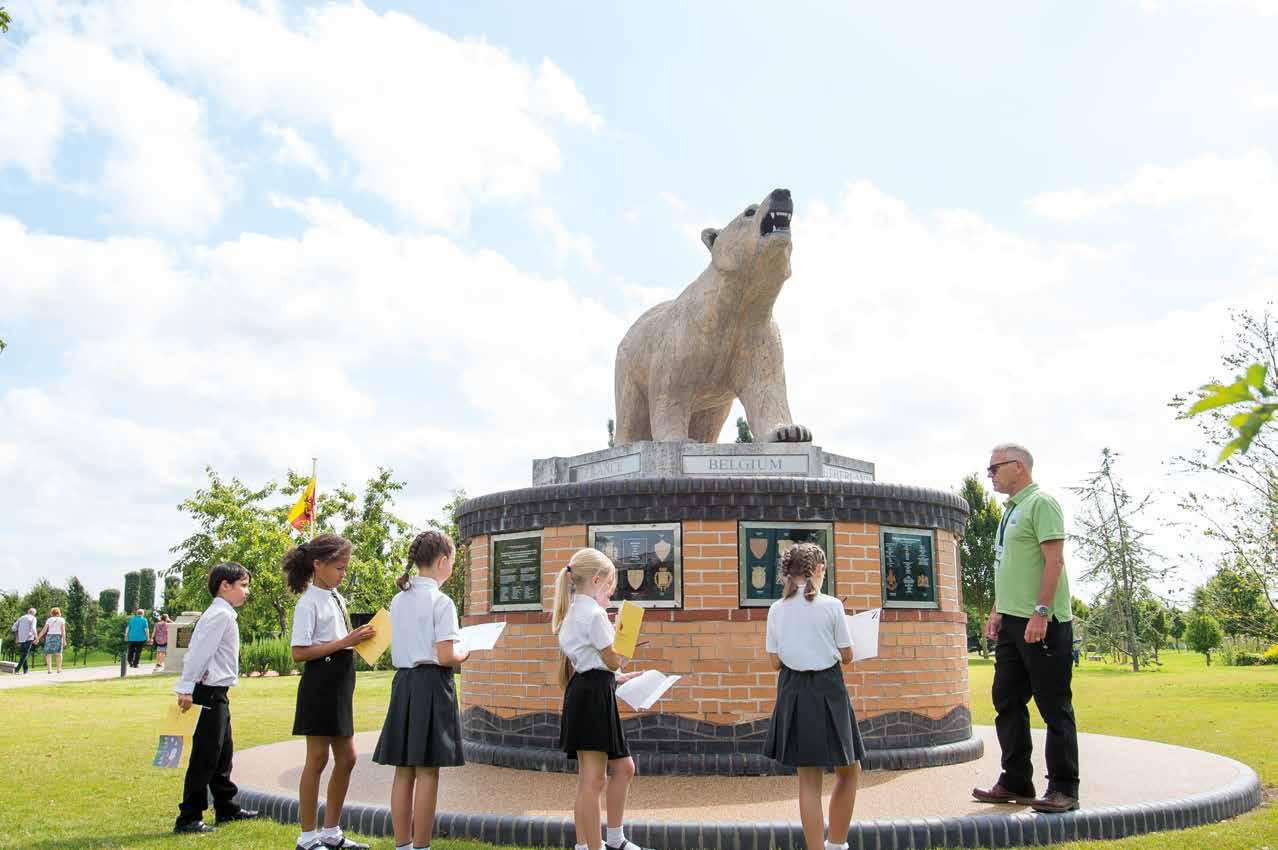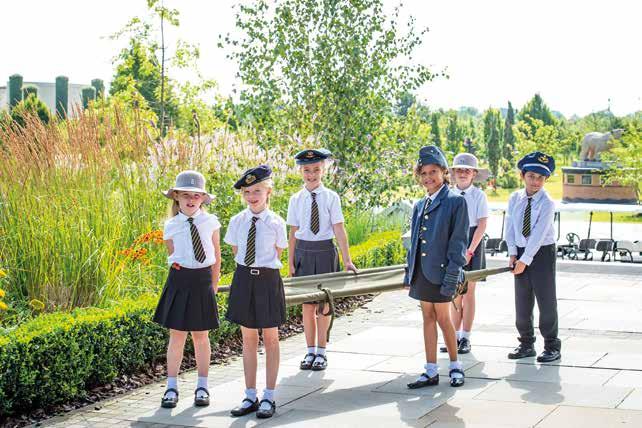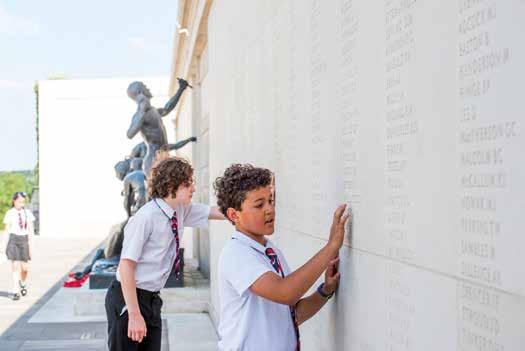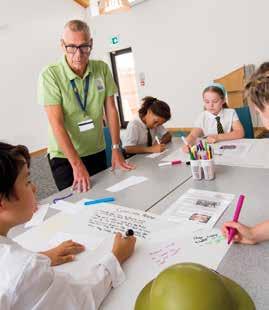
7 minute read
Polly Donnison & Warwick Mansell
Cartoon by Polly Donnison
Carry on academising – whatever the cost
Warwick Mansell is a freelance education journalist and founder/writer of educationuncovered. co.uk
IN mid-March, as the Government finally faced up to coronavirus, a host of measures were announced affecting education in England.
Schools were closed for all but vulnerable children and those of key workers, and endof-course secondary exams, as well as primary SATs, were cancelled for the year.
But on one front it was business as usual. Academy conversions have continued to take place throughout the Covid-19 crisis.
On 1 April, less than two weeks after schools were closed to most pupils and as the country tried desperately to flatten its infection curve, 53 institutions saw their control change permanently, as they took on academy status.
This is set out in Government data, which also indicates that 19 further schools took on academy status on 1 May. At the time of writing, a further 557 schools are listed by the Government as still in its pipeline for academy conversion, with 48 of those having specific proposed dates, 11 of them due to become academies this term.
With the country going through the biggest challenge to its way of life in decades, and with all those connected with education surely needing a sense of stability, is this really the time to be pressing on with permanent structural changes to schools?
I am not alone in asking this question. In April, the Local Government Association (LGA) pressed the Government to pause academisation. It said: “The LGA is concerned that council time is having to be spent on 594 academy conversions [at the time] in the pipeline, which involve the transfer of staff, assets, including land and property, and financial agreements.
“This is undermining council efforts to co-ordinate school places for vulnerable children and children of key workers.” The Government, it said, should suspend academisation, as it was “non-essential work”.
Sadly, however, this did not happen. The Department for Education said that, while its priority was “the welfare of pupils and staff in the school system” during Covid-19, academisation would “still proceed where possible, to provide clarity and certainty for schools in the short term”.
As a response, this stretches credulity: structural overhauls in the midst of a shutdown surely leave communities with many questions about what, in terms of the detail about the way the institution operates, will change when classes return.
In April, Conservative academies minister Baroness Berridge actually allowed a pause to academisation at Moulsecoomb primary in Brighton in the face of a huge campaign involving the NEU. She said in a letter to the local MP that this was because “we wanted to give the school and local authority the space to focus on immediate Covid-19 priorities”.
So why press on with academisation in other areas? It seems that, even in the midst of this emergency, Government ideology trumps other considerations. The long-term agenda, of embedding a structure in which control is via private contracts with academy trusts, is simply seen as too important to ministers.
I suspect the rigidity of such policymaking reflects wider problems which have undermined the UK’s response as a whole to this emergency, and so cost lives. n see page 17 for more academy news


Learning Visits with a Dierence
The National Memorial Arboretum is the UK’s year-round centre of Remembrance and home to over 350 symbolic memorials, including the iconic Armed Forces Memorial.
Part of the Royal British Legion, the Arboretum is centrally located in the Midlands with easy access from the M6 (toll), M42, M1, A50 and A38.
The large, 150-acre site comprises maturing woodlands, gardens, wildflower meadows and riverside walks, but it is the stories told by the memorials that create the unique experience which can only be found at the Arboretum. Each memorial is a window to our history and heritage, a physical manifestation of tales of heroism, tenacity, teamwork and dedication. Each story, each historic anecdote, translates into a wonderful learning opportunity for students of all ages and can help in the teaching of British values, citizenship, PSHE, history, English and religious education.
With both indoor and outdoor activities available, students can enjoy guided walks, self-led trails, acts of Remembrance, exhibitions and hands-on discovery. Outcomes are easy to measure and our experienced learning team can help to ensure teaching objectives are met.
For further information, or to book a familiarisation visit, contact education@thenma.org.uk
“ The Arboretum is a celebration of lifelived”
Commander David Childs CBE, founder of the National
Memorial Arboretum
At a Glance: • Cross curricular learning • Military and civilian memorials • KS1-Higher Education catered for • FREE coach parking • FREE teacher familiarisation visits • WWI and WWII Explorer Days • Experienced onsite learning team • Self-led and facilitated activities available

Our professional, onsite learning team is available to help you plan your day so you get the most from your visit. Here's what they have to say:



Chris Ansell,
Head of Participation and Learning
Why is Remembrance important? Remembrance of those who have served and sacrificed for their country is key to developing British values. Remembering those who have lived through times of conflict can also help to bring history to life, and inspire learning in a range of other subject areas, including literacy, science and art.
What facilities are there for schools at the Arboretum? We have a state-of-the-art Learning Centre featuring two purpose-built classrooms with separate access and toilet facilities for schools. We also have free coach parking. We warmly invite teachers to visit for a guided tour of the facilities before they book. Outside of the Learning Centre, what is there onsite for schools? Our 150-acre arboretum is the perfect space to teach young people about those who have served and sacrificed for their country in conflicts throughout the last 120 years, but many of our memorials also represent civilian groups who have served our nation; for example, the Bevin Boys, Women's Land Army and the Scouting movement. The memorials and interpretation across the site can inspire learning about a range of National Curriculum subjects and help develop personal and social skills.
We also have a permanent exhibition, Landscapes of Life, and two galleries which showcase a programme of high-quality, temporary exhibitions all of which are suitable for schools. When is the best time to visit? We welcome schools throughout the year. Many schools choose to visit in the summer term to make the most of the benefits of learning outside the classroom.
What does a school’s visit to the Arboretum look like? If a school has booked a facilitated visit, then they will be welcomed by a volunteer when they arrive, normally at around 10am. A morning’s activity may include a guided tour, or taking part in the daily act of Remembrance. After lunch a group could take part in one of our classroom-based activities where they’ll be guided through deeper exploration of the chosen subject. Schools usually depart around 2pm.
What do you think is the most memorable part of a school visit? The guided walks that form part of our Explorer Days are a highlight of any visit. There are many notable memorials along the way, but school children are always most intrigued in the Shot at Dawn memorial which remembers those who were shot for desertion or cowardice during the First World War.
What do children find most inspiring about the Arboretum? School groups are always inspired by the Armed Forces Memorial. It’s an impressive sight and children are interested to find out more about its design and the people remembered on the walls.
Is it just about the day? Not at all. After a visit to the Arboretum, children return to the classroom ready to learn. Their visit has helped to bring the subject to life and make it real, so children are always enthusiastic to learn more about the topic when they return to school.
And finally... a visit to the National Memorial Arboretum can help schools obtain good or outstanding status in line with the OFSTED Common Inspection Framework. Visit our website or contact










